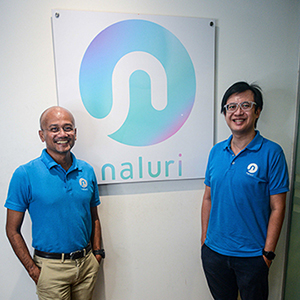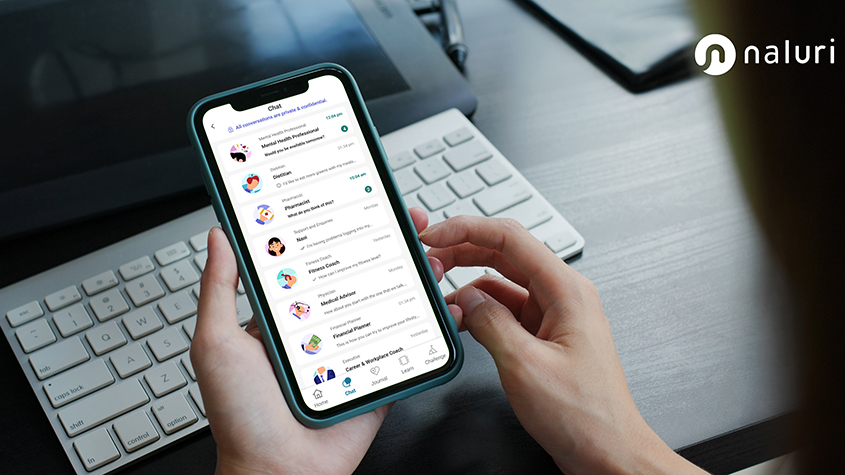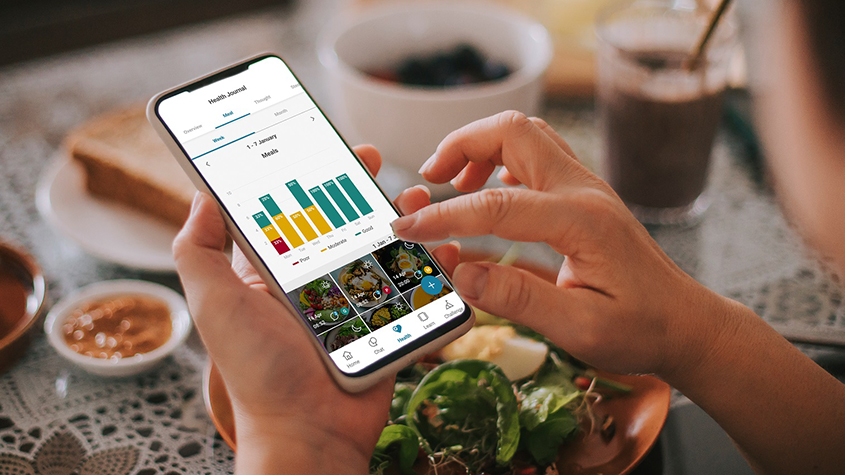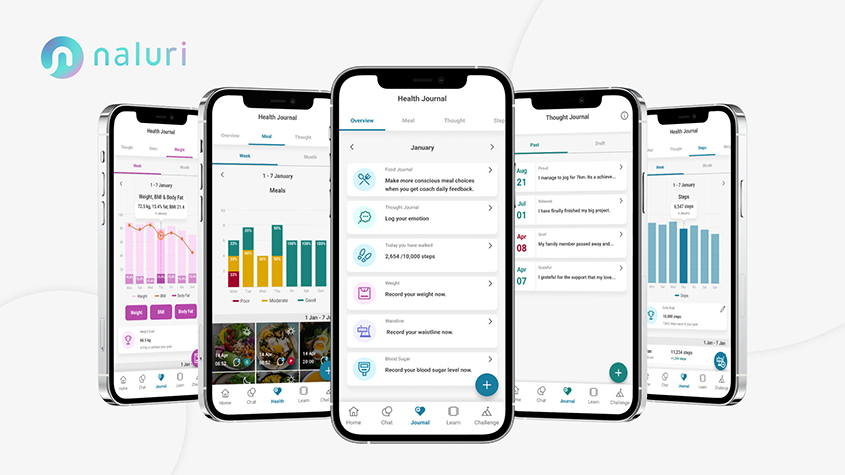Azran Osman-Rani is a serial entrepreneur and a strong believer in holistic health care. A few years back he co-founded Naluri, a digital health solution taking into account mind, body, and lifestyle factors to address chronic physical and mental health conditions, and act to prevent them.

Naluri is Azran’s first foray into health and well-being, but certainly not his first venture to democratize access to services long-denied to the mass market. For instance; long-haul travel, until then reserved for the privileged few. Azran founded low-cost long-haul airline AirAsia X and took the company to IPO six years later. He also launched iflix, at the time dubbed “the Netflix of Southeast Asia,” specifically intended to reach audiences for whom the global streaming platform was too expensive and inaccessible. In 2017, he moved on to found Naluri with Dr. Jeremy Ting, a medical systems expert.
Although those are disparate industries, Azran contends they answer the same quest: “how to make services much more affordable, accessible, and convenient to the mass market specifically in emerging markets.”
“My job is to challenge what the industry is doing today and find new ways of delivering affordable services.”
Versatility seems to define Azran, although he prefers the word “curiosity.” A restless kid, he went to university to study electrical engineering because medicine required 10 years of stark studies, and law seemed off-putting and colorless. “I took the minimum classes to graduate and was more interested in history, psychology, sailing, and ballroom dancing. I was fascinated by looking at things differently,” he recalled. “You could say I am a restless soul with a short attention span.”
Adopting a Health 3.0 Model with a Patient-Centric Approach
The passing of Azran’s father some 10 years ago from diabetes and cancer was an eye opener. “I realized that the whole healthcare system was just focused on his physical health, no one thought about his mental health, and his mental health suffered a lot.” Chronic conditions take a massive toll on mental health. “Failing to address mental health and ignoring depression and anxiety, for example, will drive people to miss chemotherapy sessions, or forget about their medication, sucking them into a negative spiral,” explains Azran.

Azran and Jeremy conducted some 60 interviews with healthcare providers, insurers, employers, and the government. Subsequently, they defined four main issues with the current healthcare ecosystem, which Azran described as a combination of “Healthcare 1.0,” which is traditional hospitals and healthcare, and “Healthcare 2.0,” which is telehealth and telemedicine, which have grown prominently during the Covid-19 crisis. Both systems, Azran said, are reactive and transactional. They also became siloed by specialization with success measured by activity (the number of appointments or treatments) rather than by health outcomes. They imagined that Healthcare 3.0 needed to be more predictive and preventive, built on a coordinated multi-disciplinary model that looks at the patient holistically.
Another issue was the lack of mental health professionals in Southeast Asia. In Malaysia, for example, all the mental health professionals available can attend to some 700,000 people per year, while 9 million need help, according to Azran.
Employee Wellness Program
Health and Wellness Makes a Healthier Business
Along comes Naluri, which means instinct or intuition in Bahasa Malaysia, with the goal of reducing chronic disease risk factors for lasting change and improved quality of life. Primarily serving employers and insurers, the company helps its clients assess the health of their employees or policyholders. As part of employees’ health screening, Naluri quantifies their levels of depression, anxiety, and stress, and conducts a simple physical health assessment like cholesterol and sugar levels, blood pressure, and weight. Patients’ results are subsequently uploaded onto their Naluri App’s Health Journal.

This entirely voluntary assessment helps organizations risk stratify their employee base “because usually, five percent of the employees concentrate over 50 percent of healthcare costs.” Most Malaysian employers include some form of medical coverage for their employees. When an employee or policyholder becomes a member, they are teamed with Naluri’s health and wellness specialists who curate a health improvement program that takes into consideration risk factors, lifestyle circumstances, family history, and health goals. Members access the service through a mobile health screening app and the company plans to roll out a web version of its platform in a few months too.
The Naluri App also includes handy self-help tools, such as the AI-assisted food journal that makes meal logging as easy as taking a photo. A snap of a meal results in quick food rating and personalized feedback and advice from Naluri dietitians.
Privacy and data protection are of utmost importance and Naluri is HIPAA-compliant. Member health data is encrypted and when used in reporting, 100% anonymized (identifying features removed and the link to the member severed). Naluri only reports aggregated data to its corporate clients.
The company is most interested in leveraging AI to support decision-making rather than for diagnosis and has built patented predictive, decision-support, and behavioral guidance models. “Aggregating information about members facilitates our health experts’ decision-making,” Azran said, adding that Naluri stays away from medicine and drug delivery and only focuses on behavioral health.
Patented Health Coaching App
Now staffed with 120 full-time employees, a third of which are health professionals, and another third of engineers, data scientists, and designers, Naluri contracts an additional 150 health professionals working on a part-time basis.
Naluri has a dual model for companies. Some clients want to cover their entire workforce, while others prefer to focus on particular departments or divisions. The client is then charged per enrolled employee.
The Covid crisis has sharply increased enrolments in Naluri programs, with 50,000 people enrolling from March 2021 to March 2022.

Azran confirmed the prime importance of IP for Naluri. “We are a business that relies on venture capital, and they are betting on technologies that they think are unique. So patents are a way to validate that uniqueness.” IP also brings more value in the eyes of Naluri’s clients. However, the company is fully conscious that in this era of steep technology progress, any patented technology is likely to become obsolete within the next five years. “Unlike the pharmaceutical sector, in digital health, in the next three to five years, something completely radical will come in.”
Naluri’s first patent was filed in Malaysia in 2018, and the two next ones through WIPO’s Patent Cooperation Treaty (PCT).
Healthcare Personalization and Multi-Disciplinary Care Models
The company is expanding with Australia and Hong Kong on the horizon and imagines a future where it could provide a financial guarantee of zero health cost escalation over a few years for employers and insurers.
The future of medicine lies in the personalization of care, according to Azran. “We are big believers of multi-disciplinary care models, from specialists to coordinated teams. We are now taking these models to expand into international markets.”
Source: WIPO

 Client Focus
Client Focus